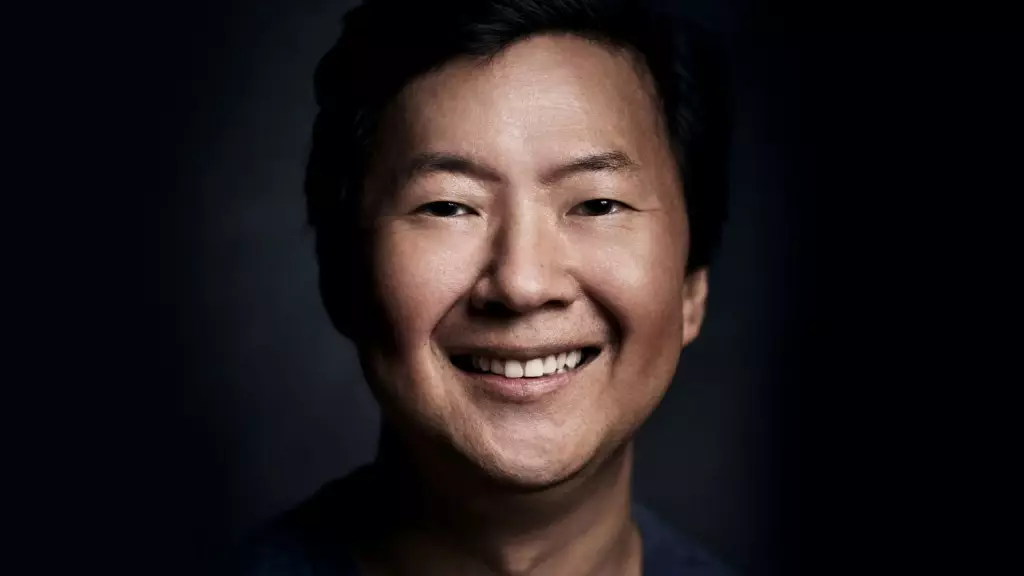Ken Jeong, renowned for his comedic brilliance in films like *The Hangover* and his infectious performances on television such as *Community* and *The Masked Singer*, is boldly stepping into uncharted territory. His involvement in the upcoming thriller *52nd State* signals a strategic and inspiring evolution of his career. Far from the predictable comedic roles that have defined him, Jeong is now venturing into a space where intensity, gravitas, and emotional depth are paramount. This transition not only showcases his versatility but also challenges the industry’s often rigid classification of actors based on their most recognized work.
The choice to participate in a project driven by a crime thriller narrative demonstrates Jeong’s desire to subvert expectations. It embodies a broader trend of comedians, historically pigeonholed into lighthearted roles, seeking to demonstrate their capacity for serious storytelling. Perhaps the most compelling aspect of this transition is Jeong’s own admission of pushing himself as an artist—seeking meaningful roles that allow him to explore different facets of his talent. This move could redefine how viewers perceive him, moving beyond comedy to a realm where emotional nuance is key.
Challenging Stereotypes and Embracing Complexity
Jeong’s portrayal of U.S. Postal Inspector Jay Hailey exemplifies this shift. His character is a quirky yet deeply human figure, caught amidst a web of deception involving a tech-savvy scam targeting the elderly. The actor’s commitment to embodying a layered protagonist running through a landscape of borders and secrecy shows a rare willingness to confront more serious themes. It’s noteworthy that Jeong is working under the direction of Todd S. Yellin, a seasoned executive with Netflix experience, and alongside an international cast. The project’s inspiration from real events lends it an extra layer of authenticity and gravitas.
What’s striking about Jeong’s participation in such a project is his own reflection on the experience. He describes the role as “meaningful,” emphasizing his desire for growth and challenge as an actor. This attitude signals a conscious effort to step outside comfort zones—an admirable quality that should inspire aspiring performers to seek diverse opportunities. Jeong’s move toward dramatic roles could begin to challenge the industry’s stereotypes, illustrating that comedic actors possess significant depth and scope beyond their traditional personas.
Reinforcing the Power of Transformational Acting
The praise from director Todd Yellin encapsulates the transformative potential of Jeong’s performance. Yellin compares him to comedic legends like Bill Murray and Robin Williams, who successfully transitioned into serious acting. The assertion that Jeong brings “intelligence and empathy” to a character struggling with personal demons marks a pivotal acknowledgment of his acting prowess.
This casting choice isn’t just a career pivot; it’s a statement about the evolution of acting and storytelling. When performers challenge themselves to diversify their craft, they pave the way for a richer, more inclusive entertainment landscape. Jeong’s willingness to confront darker themes and embody complex characters exemplifies a professional maturity that belies the comic façade many have come to associate him with.
Furthermore, his participation in *52nd State* could serve as an inspiration for other comedians and light-hearted actors to explore dramatic terrains. It highlights that true artistry requires continual reinvention and that breaking out of typecasting enriches not only individual careers but the industry at large.
The Broader Implication for Actors and Audiences
Ken Jeong’s career transition underscores a larger narrative about the evolution and depth of modern acting careers. It suggests a blurred boundary between comedic and dramatic artistry, encouraging the industry and audiences alike to reevaluate what defines an actor’s range. For Jeong, this role isn’t merely a one-time experiment but may signal a more deliberate pursuit of storytelling that resonates on a profound emotional level.
This move also aligns with a broader cultural desire for more authentic, multi-dimensional portrayals. As viewers grow increasingly sophisticated and hungry for nuanced narratives, actors like Jeong are demonstrating that versatility is not just desirable but essential for longevity. His journey from comedic icon to serious actor embodies the idea that growth often lies beyond our comfort zones—and the industry benefits from such fearless reinvention.
Ultimately, Jeong’s foray into the crime thriller genre isn’t just about a single role; it’s a testament to the transformative power of audacity in an actor’s career and a reminder that true talent often reveals itself in moments of courageous departure from the familiar.
